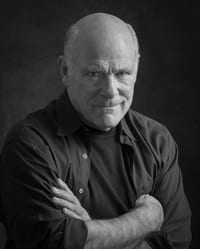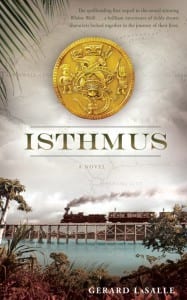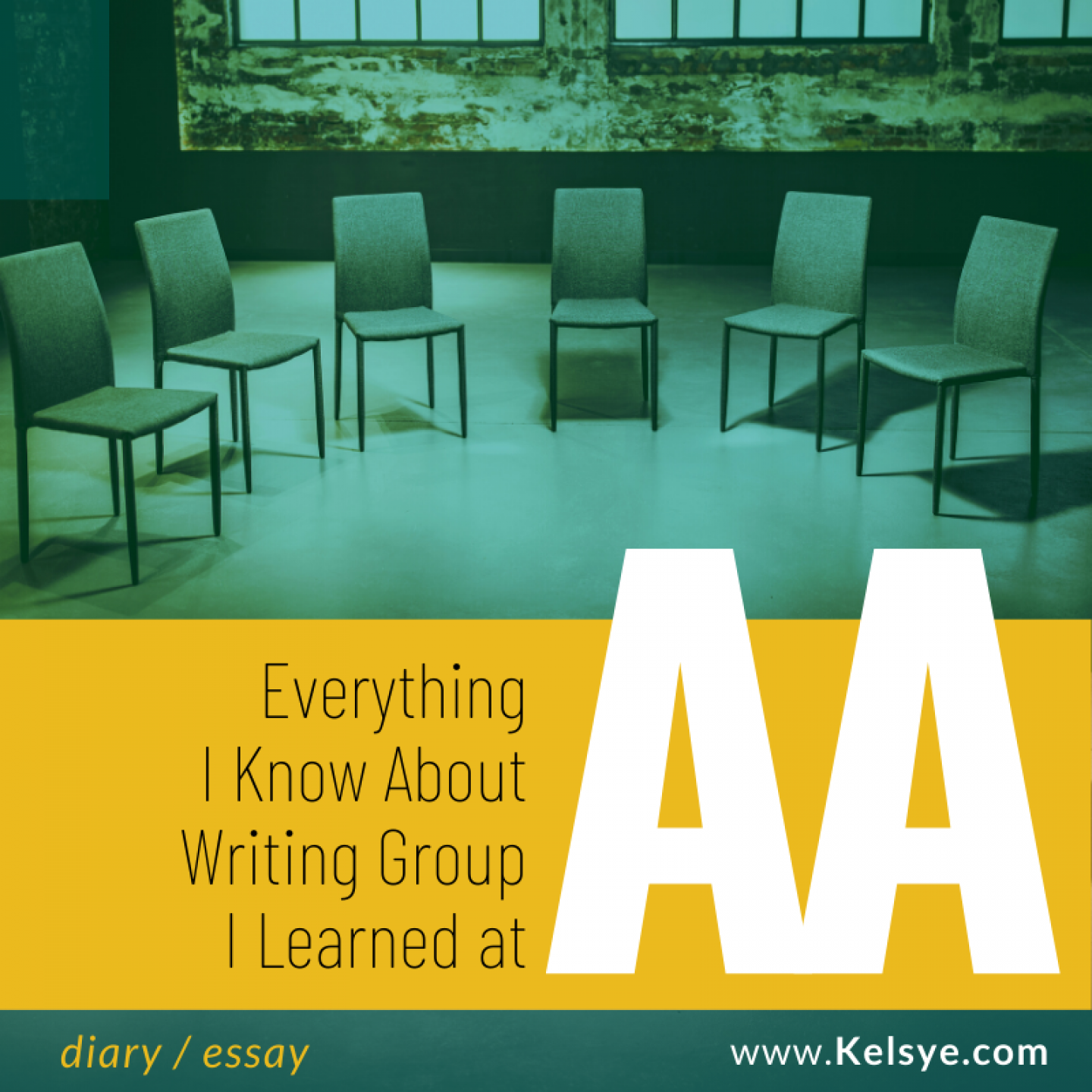 Below is an interview with Dr. Gerard LaSalle, author of the Widow Walk Saga - a historical fiction series. Dr. LaSalle built a successful career in the medical world before writing his first novel. I was very curious to hear how a writer trained with vigorous, logical thinking could so well transition to the artful, thoughtful mindset of a literary novelist.
Below is an interview with Dr. Gerard LaSalle, author of the Widow Walk Saga - a historical fiction series. Dr. LaSalle built a successful career in the medical world before writing his first novel. I was very curious to hear how a writer trained with vigorous, logical thinking could so well transition to the artful, thoughtful mindset of a literary novelist.
Dr. LaSalle, I’ve noticed that there are a growing number of physicians who have become accomplished authors. Why did you choose to write historical fiction when so many physician-writers seem to be more comfortable writing non-fiction.
I have always loved studying history, seeing how events in the past shaped our lives today, how patterns repeat themselves, how our collective consciousness evolves while human nature – the things that motivate us to do the things we do remain the same…the battles we fight, driven by appetites we do not yet really understand, and compel repetitive mistakes in our common hope for continual progress.
Why historical fiction rather than historical non-fiction?
Because in historical fiction I can tell stories about more common men and women than the usual extraordinary subjects who are written about in non-fiction history. I can play quite a bit more with the motivations of fictional characters than I might with real persons. As long as I can place my characters in an accurate, well-researched historical context, I believe I can make the history come alive for my readers in a way that is more believable and interesting.
Why did you become a writer after practicing medicine for so long?
I have always been a writer. It’s just that at this point, after treating so many patients and teaching so many great physicians to be leaders, I think I have more to say than I did earlier on in my life. And I think I can make a difference as a writer in a different way than I did when working in the ER. And I believe that certain practices like writing, teaching and filmmaking – if one is good at it, if one really has something to say, and can get the message out to a large enough audience - allow one to convey “mortal lessons.” Those lessons can be transferred in a greatly leveraged manner that reaches out to, and potentially benefits a much larger portion of humanity than the one-on-one patient-physician interaction. And unlike politics, which is a corrupted process by necessity, the practitioners of transformative arts like writing, teaching and filmmaking can avoid compromises necessitated by survival.
Was switching careers from practicing physician to writer a difficult process?
No, frankly, because the discipline involved in each career is the same. I am simply using a different part of my mind to produce an outcome, to create a useful product. The transition from being a scientist and teacher, writing papers and giving lectures was not difficult because the discipline was already established by the ongoing exercise of structuring the architecture of a project and performing what I call the “carpentry of construct.”
What I have seen as more difficult, particularly for some who are bound by convention and compliance, is tolerating what is known as the “mad-man stage” of creation that must precede, and sometimes overlap with the architectural process and construction of a project. Perhaps one reason I now write fiction is that I can, without the risk of infringing on the privacy of a patient’s confessions, sift through it all to find the pithy lessons, dig into the trove of those short stories I have been given the privilege to witness, and translate them into a memorable something that is both meaningful and plausible. In the writing of a tale I can plumb the deep depths of tragedy without succumbing to it in the way health care givers so often do.
Another very important reason I like to write fiction is that I can give myself permission to play outside a bit longer before dinner, stay up a little longer before I commit to sleep, and remember rather than ignore or suppress the colorful dreams that I am given during precious sleep. In prepping for a story, I stay in that mad-man stage as long as I can, because that is when and where I find the colors and textures for the drapery of the story. And I go in and out of the final stage, the “judgment process” all through the build. That is where research comes in.
You have mentioned the importance of empathy as a fundamental component to health care giving. Is that important to you as a writer as well?
That’s a very good question, Kelsye. Short answer…Yes. When I have taught physicians about “bedside manner” in the past, I remind them that we are well educated fisher men and women who have been given a phenomenally privileged license that comes with huge rewards but also with great personal risks. We sometimes lose our souls out there. We can succumb to self-pity and lose perspective about why we are there and why we have been given this license. We have a responsibility to tend the nets and try not to be pulled in and down by the sheer majestic weight of the complex catch. As a writer of fiction, I can cry with and for the protagonist and go to sleep at night knowing that the pain stayed on the page, was not taken home by a real patient. I have already done the crying with a real patient, and the reliving of that pain with a fictional character, who is a composite of many real persons, allows me to convey something that is meaningful to many.
So, in a way, you can tell the story of many real people you have known and treated without fear of betraying confidential information or embarrassing anyone.
That’s another good observation, Kelsye. I agree with that.
What compels you to write and how do you choose your stories?
I am interested in the ‘arc of one’s life’…what is natural, with or without the imposition of external events, and what extends or foreshortens it. So anything that addresses that concept is attractive to me as subject matter. Perhaps my compulsion to write also is related to my own control needs, as a physician-scientist who also for many years had the joy of teaching young doctors about the opportunities, failures and responsibilities of leadership. I finally came to the conclusion that there is only so much that we really can control, and much of one’s character is defined by how we contend with and react to the things that are out of our control. But when we have the opportunity to do so, to be in a semblance of control of events, then I believe it is mandatory that we seize those moments and do so in a prepared manner, with great equanimity. Writing fiction allows me to be in control, to push the boundaries in a non-destructive way.
Which is more difficult – authoring scientific articles and non-fiction prose, or writing historical fiction?
The medical pedigree doesn’t bestow the same amount of authority for the fiction authorship as it does for non-fiction prose, but both forms of authorship mandate rigorous research in my opinion, or the product one is attempting to “sell” ultimately will be dismissed.
You mentioned “research” earlier. Several reviews have lauded you for the amount of research you apparently do in developing your stories. Where do you find your information?
I get it wherever I can, whether it is by reading old journals, reading erudite research by academic historians, or traipsing the fields and beaches that my fictional characters would have walked. The historical context absolutely must be accurate and lend itself to the main themes of the story. I believe it must reinforce rather than distract from the plausibility of the ethical and emotional conflicts that a character must resolve in his/her journey. I read as much as I can while moving through the path of the tale, and try to put the voices of the characters into the mindset prevalent at that time, and avoid the common trap of inserting evolved sensitivities and proclivities into their thought processes. The real challenge for me is to find those things that remain constant motivations for all human beings, irrespective of when they may have lived. So much is defined by context. If we are to help the intelligent, discerning reader find plausibility in the actions of the fictional villains and protagonists we create, the compelling motivators for those characters must resonate with some degree of universality, don’t you think?
Your work has been praised for the character development and plausibility of their actions. How did you hone those skills in writing?
Part of the diagnostic discipline involves listening to the patient’s history. By listening and watching carefully, I realized that many of these poignant tales actually were short-stories of lives, encapsulated in the context of their accidents and diseases that brought us together in our patient-physician relationship.
My thirty -five years of practice as an emergency physician taught me to look into the eyes of my patients when they related their medical histories. By watching their eyes carefully, I learned to discern when someone was purposefully confabulating, when someone was relating a horrid truth, and when someone was simply confused,
Was the ER a good specialty for you as a writer.
Absolutely. The drama associated with all of the ER work was fabulously overwhelming at times. That’s why I decided to do a documentary about emergency medicine in 1975 as my MFA thesis at Cal Arts. It was the first one of its kind. In it, I filmed events and narrated brief stories, excerpts from a diary, all of which I had collected while working the ERs in Los Angeles in the early ‘70s. I remember that after its debut, one critic refused to believe the little stories I put in the film and called them “tall yarns.” But they were real and without exaggeration…every one of them, sad, tragic, hilarious, replete with pathos and gallows humor.
As the specialty of ,Emergency Medicine evolved thereafter in the ‘70s and ‘80s, many more people found opportunity in the wealth of human experience, witnessed by people playing gods, listening to the confessions of those in pain or “circling the drain” as we euphemistically called it. The physicians and nurses wore the costumes, the patients were naked and without the masks. The experienced practitioners were able to maintain enough balance that they could retain some empathy while preserving themselves in the process. If we had enough energy to do more beyond simply surviving the caregiving process ourselves, we recorded the stories and tried to learn from them. The ER was a perfect place for a writer-to-be like me.
You are described by many as a master storyteller. How did you learn that skill?
I guess have always been a storyteller. I grew up in a family of opera singers, many of whom, like my father, also were fabulous oral historians. I watched them perform and listened to them set up their audiences. They understood the structure of “the tell”, and the importance of mixing anticipation with uncertainty. My artist-teachers at CalArts helped me find names for the essential elements of that process.
Any advice for novice writers?
Watch and listen. Wring out every drop. Never give up. Have joy in the practice. Accept the dips with hope and savor and cherish the highs when they come. Write from the inside.

 Gerard LaSalle is an MD, CMO, award-winning filmmaker, visionary and highly respected leader, teacher, volunteer, and captivating story-teller. A graduate of Reed College, Cornell University Medical School, California Institute of the Arts, and having completed his Emergency Medicine residency at UCLA Hospitals and Clinics, LaSalle has not only left an imprint on the medical community, but has been honored for his animation and teaching films, feature-length documentary, and writing. LaSalle’s love of history and his native area of the Pacific Northwest were brought together beautifully for the making of his first novel, Widow Walk. The book’s sequel, Isthmus, was published this December by Avasta Press.
Gerard LaSalle is an MD, CMO, award-winning filmmaker, visionary and highly respected leader, teacher, volunteer, and captivating story-teller. A graduate of Reed College, Cornell University Medical School, California Institute of the Arts, and having completed his Emergency Medicine residency at UCLA Hospitals and Clinics, LaSalle has not only left an imprint on the medical community, but has been honored for his animation and teaching films, feature-length documentary, and writing. LaSalle’s love of history and his native area of the Pacific Northwest were brought together beautifully for the making of his first novel, Widow Walk. The book’s sequel, Isthmus, was published this December by Avasta Press.






